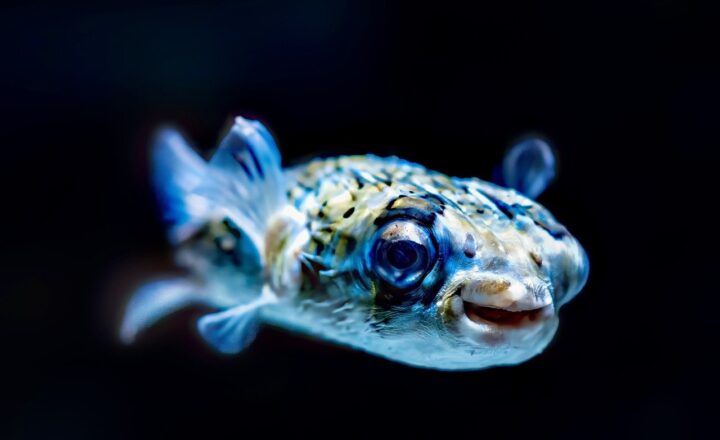Exotic Pets 101: What to Know About Caring for Reptiles, Birds, and Amphibians
November 16, 2024

If you’re considering venturing into the world of exotic pets, you might find yourself captivated by the unique beauty and behavior of reptiles, birds, and amphibians. However, caring for these creatures requires an understanding of their unique needs and lifestyles. This article will guide you through the essential aspects of keeping these exotic pets in your home, ensuring they thrive and bring joy to your life.
1. Understanding Exotic Pets
Exotic pets differ significantly from traditional dogs and cats. They encompass a wide variety of species, including reptiles (like snakes and lizards), birds (like parrots and canaries), and amphibians (like frogs and salamanders). Each of these groups requires specific habitats, diets, and care routines, making them rewarding yet challenging companions.
Exotic pets are ideal for individuals and families looking for unique companionship or who have allergies to traditional pets. However, potential owners must commit to understanding these animals’ natural behaviors, habitats, and dietary needs before bringing one home.
2. Care Guide for Reptiles
Reptiles are cold-blooded creatures that require specific environmental conditions to thrive. Here’s what you need to know to care for them:
- Habitat: Depending on the species, reptiles need a secure enclosure that mimics their natural habitat. For example, snakes need a long, narrow cage, while turtles require a more expansive aquatic area with a basking spot. Ensure your enclosure has proper ventilation, security, and space for movement.
- Temperature Control: Most reptiles need a temperature gradient in their habitat, ranging from warm to cooler areas. A heat lamp or under-tank heater can create this effect, but always research the specific heat requirements for your pet.
- Diet: Reptiles have varied diets ranging from insects to greens, and some are strictly carnivorous while others are herbivorous. Know the dietary preferences of your specific reptile species, and ensure they have access to clean water at all times.
- Health Care: Regular visits to a veterinarian who specializes in exotic pets are crucial for ensuring your reptile’s health. Watch for signs of stress or illness such as lethargy, changes in eating habits, or improper shedding.
Taking these steps will ensure your reptile is well cared for and can live a healthy life in its new home.
3. Caring for Birds
Birds are social creatures that often thrive on interaction and enrichment. Here’s how to provide the best care for your feathered friend:
- Housing: A spacious, appropriately-sized cage is essential. The cage should allow for wing spans and be filled with perches of varying sizes. Birds also enjoy toys and activities that stimulate their minds and keep them entertained.
- Diet: Most birds thrive on a diet of balanced seeds, pellets, fruits, and vegetables. Make sure to research the dietary requirements of your specific bird species, as some require added nutrients such as calcium or specific vitamins.
- Social Interaction: Birds are extremely social animals and often require companionship. Ensure you provide daily interaction, or consider adopting more than one bird for company. They can develop strong bonds with their owners and may even learn to mimic sounds and speech over time.
- Health Care: Regular veterinary check-ups are crucial since birds can mask their pain and illness. A sudden change in behavior can indicate health issues, so it’s important to be observant of your pet’s habits and health.
A properly cared-for bird can bring joy and companionship for many years.
4. Amphibian Care Essentials
Amphibians, such as frogs and salamanders, are often overlooked but can make fascinating pets. Here’s how to ensure they thrive:
- Environment: Amphibians require both dry and wet environments to mimic their natural habitats. A terrarium that provides a wet area along with dry land is ideal. Ensure the enclosure has a secure lid since many species are excellent climbers.
- Humidity and Temperature: Maintain the appropriate humidity levels in your amphibian’s environment, which often requires daily misting. If you’re keeping tropical species, the temperature should also be monitored closely to mimic their natural setting.
- Dietary Needs: Amphibians typically feed on live food. Research the dietary requirements of your specific species, as they may feast on insects, worms, or specialized commercial food made for amphibians.
- Health Monitoring: Amphibians often require specific environmental conditions to thrive. Watch for signs of stress, such as lethargy or skin abnormalities, and consult an exotic pet veterinarian if you notice any issues.
With proper care, amphibians can be mesmerizing pets that offer a glimpse into the lifecycle of their species.
5. Common Misconceptions About Exotic Pet Ownership
Despite their unique appeal, many misconceptions surrounding exotic pet ownership can deter potential owners. Let’s clarify some of these:
- Exotic Pets Are Low-Maintenance: Many people believe that exotic pets are easier to care for than traditional pets. However, they often require just as much, if not more, specialized care tailored to their needs.
- They Don’t Need Veterinary Care: Some owners believe that exotic pets can go without vet visits. On the contrary, regular check-ups are critical to prevent potential health issues and to ensure they receive proper care.
- Training Is Not Required: While training might look different for reptiles or amphibians, many birds can learn commands and behaviors. Engaging with them helps promote mental wellness and socialization.
- They Are Suitable for Everyone: Not every exotic pet suits every lifestyle. Factors like space, time, and financial resources should always be considered before taking on any pet responsibility.
Understanding these misconceptions will help you make the best decision for yourself and the animals you wish to care for.
6. Conclusion
Caring for exotic pets can be incredibly rewarding but also comes with challenges. By understanding the unique needs of reptiles, birds, and amphibians, you can provide a nurturing environment that allows them to thrive. Always remember to conduct thorough research and consult with professionals to ensure you’re fully prepared for the responsibilities that come with exotic pet ownership. By doing so, you’ll not only enrich your life but also the lives of your unique companions.
If you are ready to embrace the exciting world of exotic pets, make informed choices, and ensure these animals can thrive under your care.






